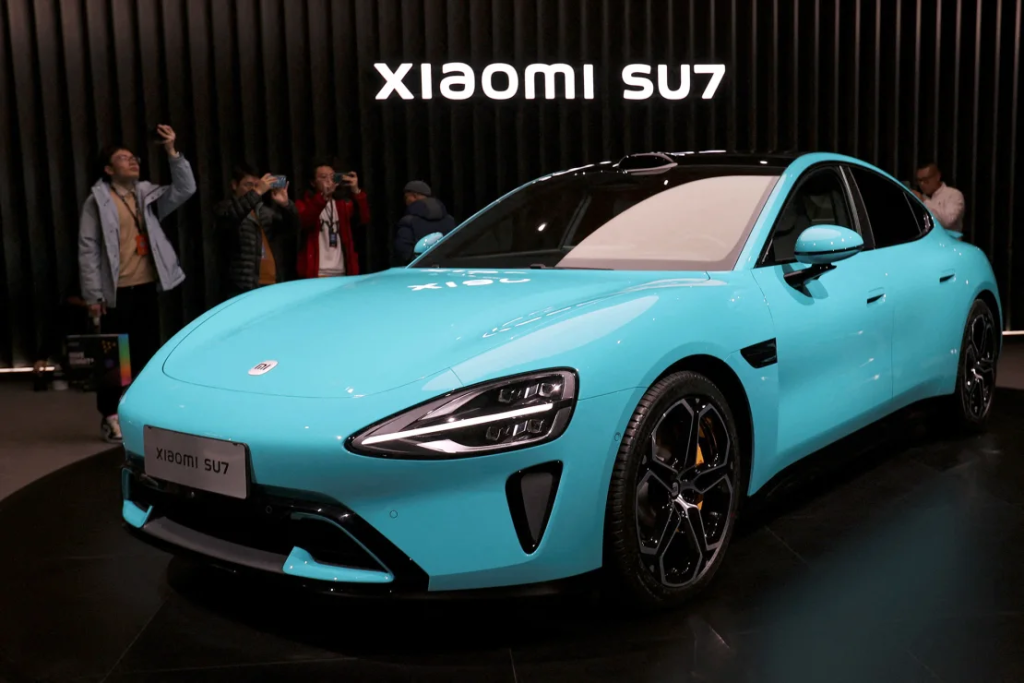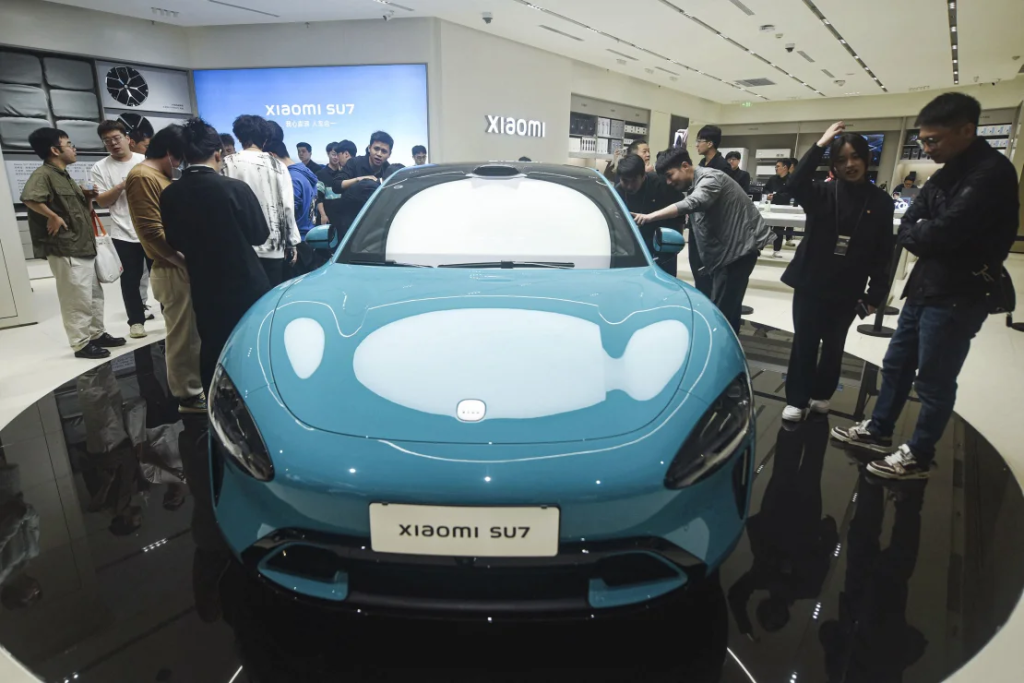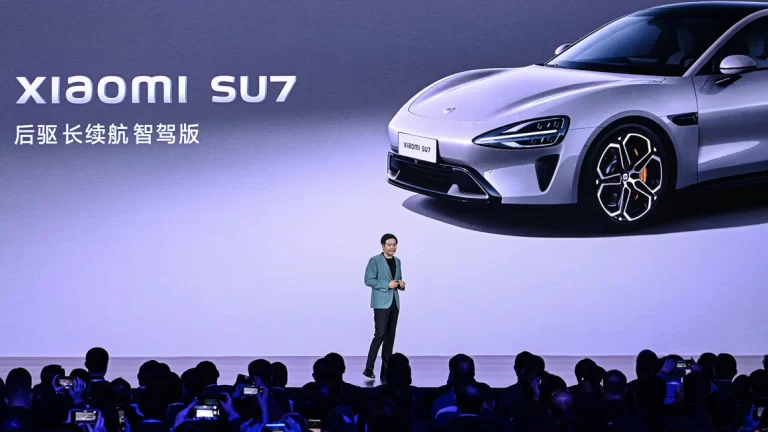Xiaomi formally launched its much-anticipated electric car — the new Speed Ultra 7 (SU7) sedan — on Thursday night in Beijing. Lei Jun, founder and CEO of the popular Chinese smartphone brand, said the company’s first electric vehicle would sell for 215,900 yuan ($29,874) to 299,900 yuan ($41,497) in the country.
The starting price is about $4,000 cheaper than Tesla’s Model 3 sedan, which starts at 245,900 yuan in China. Lei had teased the launch earlier this week by saying he wanted the SU7 to be the “best-looking, easiest to drive, and smartest car” priced below 500,000 yuan ($69,180).
“Xiaomi wants to build a ‘dream car’ comparable to Porsche and Tesla,” he said on Weibo Wednesday.
“If we want to build good cars, we must seriously learn from these two best car manufacturers in the world,” he added.
Xiaomi had said previously that it’s targeting premium consumers with the new car. The pricing means it’s positioned competitively against its foreign rivals. An imported Porsche Taycan starts at 898,000 yuan ($124,248) in China. Tesla’s Model S, the US car maker’s premium electric sedan, starts at 698,900 yuan ($96,700).
EVs in China are priced much lower than in the rest of the world. For example, BYD’s most affordable model, the Seagull hatchback, costs only 69,800 yuan ($9,658).
The standard version of Xiaomi’s SU7 has a starting range of 700 kilometers (435 miles), which is better than the long-range version of Tesla’s Model 3, Lei said. Orders for the car had exceeded 50,000 units within 27 minutes since sales started at 10 p.m. Beijing time on Thursday, Xiaomi announced.

“My excitement today can’t be described in words,” Lei said on Thursday night.
Founders and CEOs of several Chinese EV makers, including XPeng Motor’s He Xiaopeng, Nio’s William Li, and Li Auto’s Li Xiang, attended Xiaomi’s launch event on Thursday, according to the video shared by the company.
Xiaomi’s big auto ambitions come at a time of intense competition in the industry in China. The world’s largest EV market, supercharged by heavy state subsidies in the past decade, has become overcrowded.
Chinese smartphone maker Xiaomi's first electric car, Xiaomi SU7 model, is seen at a shop in Hangzhou, in eastern China's Zhejiang province on March 25, 2024. Stringer/AFP/Getty Images There are currently more than 200 major manufacturers producing pure EVs and plug-in hybrids. A price war erupted last year as companies tried to boost sales in the face of weaker consumer demand.
Average profit margins fell to just 5% in 2023, according to official statistics. The biggest player in the industry, BYD, said earlier this week that its quarterly profit growth was the slowest in two years, as sales lost momentum.

Xiaomi’s SU7 has been on display in showrooms in 29 cities across mainland China since Monday, according to Lei.
Xiaomi, which made its name as manufacturer of smartphones and other consumer electronics, accounted for 13% of both global and Chinese smartphone sales in the last quarter of 2023, according to data from Counterpoint Research. It ranked No. 5 in China for the full year.
In 2021, Xiaomi announced that it would invest $10 billion over the next decade into a subsidiary focused on smart EVs.


